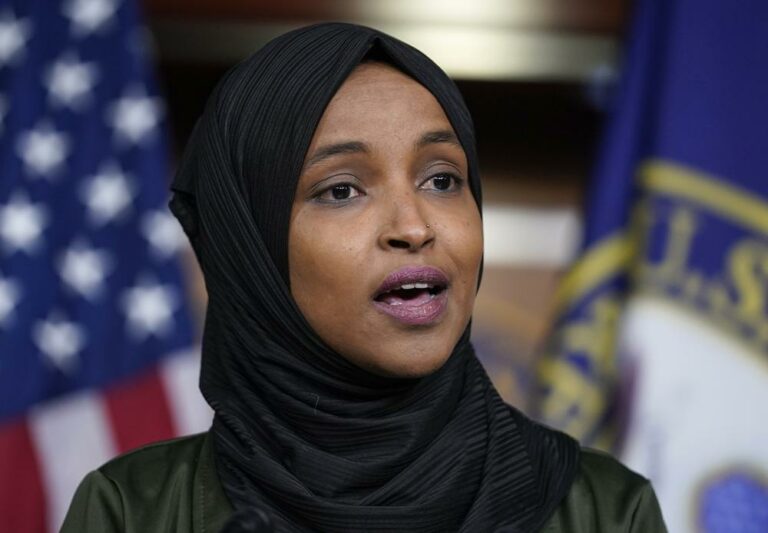 America’s top intelligence official echoed what many U.S. experts have long argued when he said this week there was little chance North Korea would agree to shut down its nuclear weapons program.
America’s top intelligence official echoed what many U.S. experts have long argued when he said this week there was little chance North Korea would agree to shut down its nuclear weapons program.
The surprise, though, was that National Intelligence Director James Clapper had made the statement publicly, staking out a position contrary to the White House’s and wading into policy questions.
“To hear the head of the intelligence community say that the North Koreans are not going to give up their nuclear weapons, he’s just telling us what everyone already knows,” said Ralph Cossa, president of the Pacific Forum CSIS, a Honolulu-based foreign policy research institute, and a longtime Asia security analyst with the U.S. military.
But when Clapper said that it was probably a “lost cause” to convince the North Koreans to abandon their nuclear program — as opposed to presenting a carefully measured analysis of the current situation — he was going beyond the normal role of an intelligence official.
“Intel guys are supposed to tell you what they assess of the world, but are supposed to steer clear of talking about policy,” Cossa said.
“If you want to talk about policy, you retire first.”
Only Clapper knows why he made the statement Tuesday during a question-and-answer session following a speech at the Council on Foreign Relations in New York.
Some observers believe he may have simply misspoken — accidentally telling the truth in a wide-ranging discussion. Others wondered if it could be a way to tell Beijing it needs to ramp up enforcement of international sanctions on North Korea. Still others saw a signal to Pyongyang about a possible change in U.S. policy.
Or, maybe, it was about the upcoming presidential election, and Clapper was telling the next U.S. president that things need to change.
He “only has to toe the party line for the next three months,” said John Raines, head of political risk at the international analysis firm IHS Markit. Perhaps he decided “he could say something he felt was important.”
North Korea, for its part, insists it will never give up its nuclear weapons, declaring itself a “nuclear state” in its 2012 constitution. One of the government’s key policies, byungjin, calls for developing a nuclear arsenal even as it builds its domestic economy. Pyongyang regularly tosses around atomic threats, warning recently that if it detected any sign of aggression it would reduce Seoul and Washington to “a heap of ashes through a Korean-style pre-emptive nuclear strike.”
North Korea’s leader, Kim Jong Un, appears to see nuclear weapons as a guarantee of his own survival — that no country will attack him if he’s able to respond with such force. He has ordered a dramatic increase in nuclear and missile tests since coming to power in 2011, and particularly over the past year, increasing both the strength of the North’s nuclear blasts and the range of its missiles.
North Korea may already have nuclear-tipped missiles capable of hitting U.S. military bases in the Pacific, and analysts increasingly believe it could have the ability to strike the western United States in less than five years.
Washington has long insisted it will not accept a nuclear-armed North Korea, and officials reiterated that after Clapper’s comments, saying there had been no policy changes. A string of U.S. administrations have demanded that North Korea denuclearize, but aid-for-disarmament talks have been stalled for years, and sanctions have failed to slow Pyongyang’s weapons programs.
“Looking at the ways that Kim Jong Un has spoken of the North Korean nuclear program, it’s clearly not something he wants to trade away,” said Andrea Berger, a proliferation expert at the Royal United Services Institute, a London-based security research center. “They actually may never sell their nuclear program at any price.”
What they may be willing to accept, she said, is some sort of limits on their program, a possibility Clapper also mentioned.
“The best we could probably hope for is some sort of cap,” Clapper said. “But they’re not going to do that just because we ask them. There’s going to have to be some significant inducements.”
Those inducements could be carrots, sticks or some sort of combination, anything from multibillion-dollar aid packages to the threat of tightened sanctions.
The U.S. has long opposed negotiating a cap on Pyongyang’s nuclear program, fearing it would be a tacit acknowledgement of North Korea as a nuclear weapons state, and would reflect a failure of years of American policy.
“We need to get to the table to figure out what the incentives are that are going to change the North Korean posture,” said Dennis Wilder,” a professor at Georgetown University and former official with the CIA and the National Security Council. Wilder called efforts to get China to tighten sanctions on North Korea one of the most important challenges of the next U.S. administration.
Until there’s a new U.S. president, though, it’s unlikely anything will change between Washington and Pyongyang.
“Right now we’re kind of stuck on our narrative and they’re kind of stuck on theirs,” Clapper said after his speech.
(AP)











One Response
We should never give a penny to this mass murderering communist/fascist evil gangster state. Anything we give goes only to the elite and the military. They are the most vicious evil govt in the world.